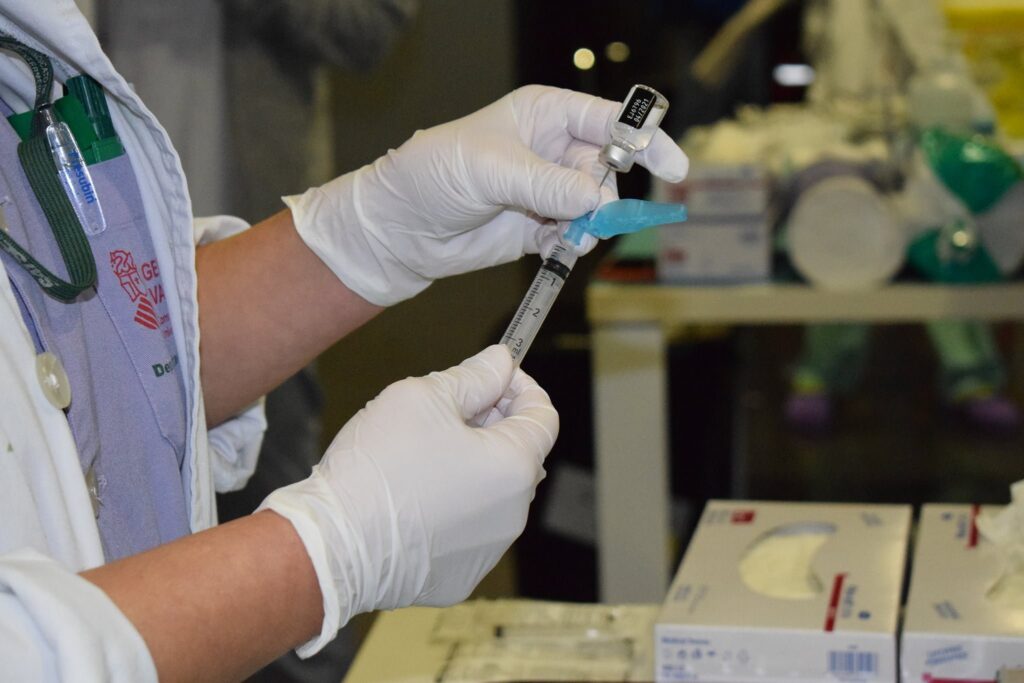Second booster doses against COVID-19 will be administered to people who work in health centres
As of Monday, October 17, those with high-risk health conditions and the population aged 80 and over will also be vaccinated

Wednesday 5th October 2022 · Mike Smith
Source: GVA Sanitat
The regional health ministry has begun to administer the second booster dose of the coronavirus vaccine to the staff of health centres, services and establishments, both Primary Care and hospital, public and private, as well as to the people who work in health emergency services and are in contact with patients, a total of some 130,000 people.
And, in addition to health workers, and people who live or work in nursing homes and other disability care centres and who are already receiving extra protection against the coronavirus, starting Monday 17th October, those who have high-risk health conditions and the population aged 80 and over will also receive the second booster dose, in accordance with the Vaccination Recommendations against COVID-19 for autumn in Spain from the Ministry of Health.
Specifically, it is planned to start immunization with those over 80 years of age and, then, over 70 years of age and over 60 years of age, in this order because age is a risk factor for coronavirus disease.
In the case of people who will receive the vaccine by age, “the second booster dose of the COVID vaccine will be combined with the flu vaccine to avoid repeat visits,” explained regional health secretary Miguel Mínguez. Adding up all the groups, the number of people likely to receive the second booster dose of the coronavirus vaccine in the Comunidad Valenciana will be 1,659,534.
In the first week of implementation of the Vaccination Recommendations against COVID-19 for autumn in Spain, a total of 17,618 people have received the bivalent vaccine in the Comunidad Valenciana.
Five months apart since the last COVID vaccine
The Comunidad Valenciana is administering this booster dose with bivalent vaccines, which generate protection against the omicron subvariants (those currently present) and against other variants that previously circulated.
The dose is being inoculated regardless of the number of vaccines previously received because these are new preparations that protect against omicron subvariants and other strains. Furthermore, recent infection is neither a contraindication nor an excuse for vaccination against COVID-19. However, a better response to vaccination has been observed when a time interval between previous infection and vaccination is respected.
Specifically, the period is at least five months after infection (this includes people with prolonged symptoms after COVID-19) except for residents of nursing homes, people aged 80 and over, and patients who have a high degree of immunosuppression, groups for which the interval is reduced to three months.




